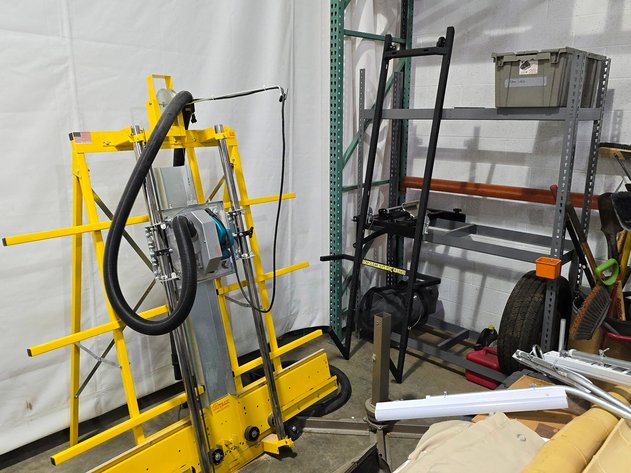The Types Of Real Estate Auctions – Big Benefits To Sellers

Real Estate Auctions & Big Benefits To Sellers
Selling real estate at an auction can produce amazing outcomes. For anyone planning to sell a piece of real estate, exploring the benefits below will help you learn why an auction may be your best course of action. This article will walk you through a series of valuable questions and answers, then it will give you a comprehensive list of benefits for selling real estate at auction.
What is a real estate auction?
A real estate auction is a way of selling a piece of property with focused, targeted media and advertising that draws the attention of qualified buyers in a short window of time. It is thought to be an innovative and strategically effective way of selling a piece of property. The auction process for real estate involves the public sale of the aforementioned property through what is known as ‘open cry’, competitive bidding.
What are the different types of real estate auctions?
If you are looking to sell your property in an auction, then you’ll benefit from understanding the 3 types of auctions involving real estate. Each of these types comes with its own set of bidding requirements. Also, each method generally attracts a specific type of buyer.
Type of Property Sale & Type of Auction – What is the difference?
The most essential jargon and concept to understand about real estate auctions is the difference between ‘type of property sale’ and the ‘type of auction’. The type of property sale refers to the status or condition of the property. The ‘type of property sale’ only refers to the property and can be thought of separately from the type of auction. One important note, the ‘type of property’ will have some influence on the ‘type of auction’ that best suits the successful sale of that property. You’ll read about some examples below. There are basically five ‘types of property sale’ that most commonly happen. Let’s reviewed them now
The ‘type of auction’ refers to the manner in which the property will be sold. It is how the property will be sold on auction day. We will review the three types of auction for real estate right after we cover the types of sale.
The Types of Property Sale
In the most common forms, there are five different types of property sales at auctions. Here are the most important parts of each type that you should be aware of while you decide how you will list a property in auction.
For Sale By Owner
Though (FSBO) is not the most common type of property auction, real estate prices reaching an all-time high are driving up the popularity of this option. More and more sellers have begun to list their homes on auction sites as FSBO. The buyers understand that these homes may come in a variety of conditions and the mortgages are usually in good standing.
Foreclosure
Possibly the most assumed type of property auction. Historically, when most people hear that a house is going up for auction, they assume that the home is in foreclosure. As a reminder a foreclosure happens when a homeowner doesn’t pay the mortgage on a property. The lender will take possession of the home and sell it at auction in an attempt to reconcile the mortgage balance.
Tax lien
In this scenario, bidders can buy the right to collect the taxes owed. Once an entity owns the tax debt, that entity can actively collect the taxes that are outstanding with added interest. Or the property can be foreclosed and taken.
Non-Distressed Real Estate Owned
In a non-distressed (REO), a property foreclosure that doesn’t sell at the courthouse auction will often be repaired and marketed by the lender. This is usually a long-term investor (like a bank) that plans to auction the property at a later time.
HUD
Housing and Urban Development property foreclosures fall under the Federal Housing Administration. A HUD auction happens online over time. Often, the listings are off-limits to investors in the beginning because they are primarily meant to be a first-come, first-serve opportunity for occupying residents. If no occupying buyers make an offer, investors are then allowed to bid on the property.
As we briefly stated above, in the past when people heard of a property going up for auction, their default impressions leaned towards situations of distress, foreclosures, or some other less-than-optimal financial scenario. That trend is changing and real estate auctions are now becoming a cutting-edge opportunity for sellers. This is one of many popular methods leading away from the traditional property sales model. And this method of selling property can most certainly mean a better number for the bottom line of the seller.
Now, let’s explore the different types of auctions that a property could be involved with. To quickly revisit what this means, the ‘type of auction’ refers to the manner in which the property will be sold, how it will be sold on auction day.
The Types of Auctions
The Reserve Auction
In a reserve auction, the winning bid does not automatically purchase the property. The high bid is considered an offer. It is not the sale price. After the auction is completed, the seller holds the right to accept or deny the winning offer in 72 hours. As you may assume, in this scenario the seller isn’t distressed. This type of auction attracts long-term investors. These types of buyers know their market and understand that they can find valuable real estate investments when they engage in a reserve auction.
The Minimum Bid Auction
In a minimum bid auction, the seller will set a minimum reserve price for the property that must be reached by the bidders. The seller is only obligated to accept the set minimum price or anything above. In this scenario, if the highest bid doesn’t meet the reserve requirement, the property will remain unsold. You can count on the fact that the seller is not distressed. This method is often deployed by banks when they are not under pressure to sell a foreclosure. They are long-term investors who likely have a target percentage that they want to recover from the loan.
The Absolute Auction
In an absolute auction, the property will be sold to the highest bidder no matter the closing price. There is no minimum bid set by the seller. In this scenario, the property can sell at any rate to the bidders. This can be a particularly positive method for sellers in the current and forecasted future real estate market. Competition to buy and sell homes continues to climb at staggering rates and there is arguably no signs of this slowing down anytime soon. This type of property auction will attract very serious cash buyers and strategic short-term property investors.
The Benefits Of Selling Property At Auction
There are many advantages embedded into selling your property through an auction. Not only is it an exciting experience when done the right way and with a top-notch auction team, but it also speeds up the timeline of selling a property, allows for big value opportunities, and it simplifies the entire experience.
Here are some of the most notable advantages of working with a top-notch auction team:
Unlimited Selling Price
There’s no asking price to come down from and the opening bid prices are driven up by competitive bidding.
As-Is Selling Conditions
Your property is sold as-is. No contingencies or numerous inspections or repairs to lower the price.
Aggressive Marketing
An auction is designed to saturate potential qualified buyers with information on the property, engage their prompt interest, and call them to act. An auction marketing campaign builds interest up to the final sale date, maximizing excitement to buy. We will present your property to potential buyers through an aggressive marketing campaign employing direct mail, digital marketing, signage, and personal contact as appropriate to the property and the market.
Control
The seller sets their sale date, terms, and timeline.
No Negotiations
An auction insulates sellers from stressful and awkward negotiations.
Serious Buyers
Buyers come ready to buy. Auction buyers are required to put down substantial non-refundable deposits which lead to contracts with serious, qualified buyers which rarely if ever fall through.
Value is Determined
In today’s market, it can be tough to determine the value of a given property. With that said, an auction is the best determination of value. We create the target market and maximum competition to achieve the highest price. With an auction, there is no money left on the negotiating table.
When it comes to selling property in auction, Auction Masters’ primary focus is on our clients’ continued success. We place the seller’s best interest first with a tried and true system for delivering on the best experience possible. A major part of our winning process is helping clients understand and become comfortable with the selling experience. We want you to know that when you work with our team, we will do everything we can to help you see the best returns.
Before you choose the traditional route of selling property, give Auction Masters a call and see if we can offer you a better opportunity. Remember, you’re not obligated to deal with headaches caused by the usual methods for selling real estate property. Call Auction Masters today and let us introduce you to a new method of success!













